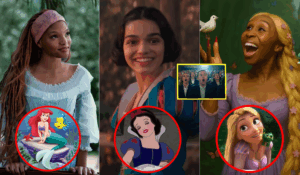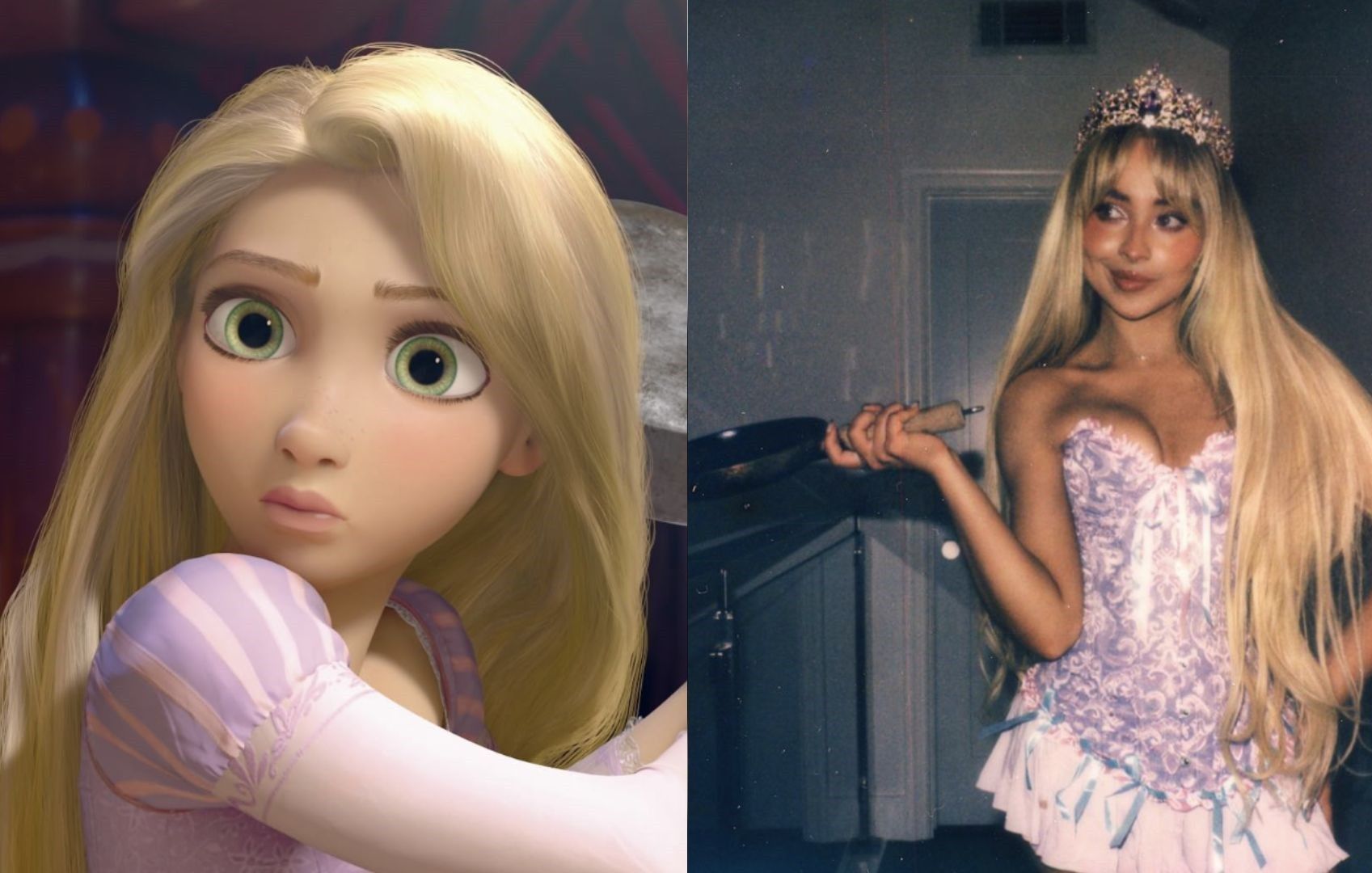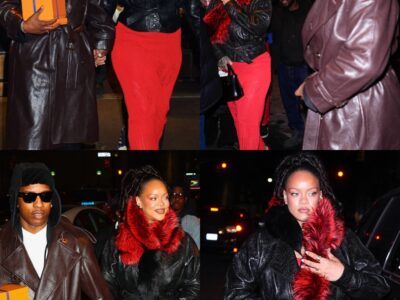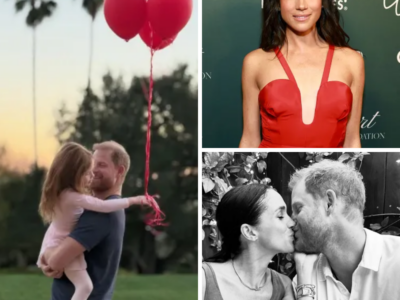
Disney’s live-action remakes have been a polarizing topic, with recent adaptations like The Little Mermaid (2023) and Snow White (2025) sparking heated debates over casting choices and creative direction. Despite these controversies, Disney is reportedly moving forward with a live-action adaptation of Tangled (2010), the beloved animated film based on the Brothers Grimm fairy tale Rapunzel. However, recent rumors suggest that the studio is considering a diverse casting choice for the role of Rapunzel, potentially a woman of color, reigniting discussions about representation, fidelity to source material, and Disney’s approach to its live-action remakes. This article explores the latest developments, the backlash, and whether Disney has failed to learn from its past missteps.
The Tangled Remake: What We Know So Far
In December 2024, Disney confirmed that a live-action Tangled was in development, with The Greatest Showman director Michael Gracey attached to helm the project and a script by Jennifer Kaytin Robinson. The original 2010 animated film, featuring Mandy Moore as Rapunzel, Zachary Levi as Flynn Rider, and Donna Murphy as Mother Gothel, was a critical and commercial success, grossing over $592 million worldwide. Its comedic twist on the classic fairy tale, paired with memorable songs by Alan Menken and Glenn Slater, made it a fan favorite.
However, in April 2025, reports from outlets like Variety and Deadline revealed that Disney had paused pre-production on Tangled following the underwhelming box office performance of Snow White, which grossed just $145.7 million against a $270 million budget. Despite this hiatus, casting rumors have continued to swirl, with names like Florence Pugh, Sabrina Carpenter, and Taylor Swift linked to Rapunzel, and Kathryn Hahn and Demi Moore rumored for Mother Gothel. Most notably, Scary Mommy reported in March 2025 that Avantika Vandanapu, an Indian-American actress known for Mean Girls (2024), was screen-testing for Rapunzel, sparking both excitement and controversy.
Casting Controversy: A Repeat of Past Debates

The rumor that Avantika, a woman of color, could play Rapunzel has reignited debates similar to those surrounding The Little Mermaid and Snow White. In The Little Mermaid, Halle Bailey’s casting as Ariel, a character traditionally depicted as white with red hair, faced significant backlash, with hashtags like #NotMyAriel trending on social media. Despite the film grossing $569 million worldwide, the controversy highlighted a divide among fans, with some praising the diverse casting and others arguing it deviated from the animated classic’s aesthetic.
Similarly, Snow White faced criticism over Rachel Zegler’s casting as the titular princess. Zegler, of Colombian descent, was targeted by detractors who claimed her ethnicity did not align with the character’s “skin as white as snow” description from the Grimm tale. The film’s poor performance, coupled with negative reception to its CGI and Gal Gadot’s portrayal of the Evil Queen, led to an estimated $115 million loss for Disney, as reported by Deadline.
Avantika’s rumored casting for Rapunzel has followed a similar pattern. Gizmodo noted that she faced “internet attacks and harassment” from those opposed to a non-white actress playing a character traditionally depicted as blonde and fair-skinned. These reactions echo the racist backlash Avantika endured during Mean Girls, where she was targeted for her role as Karen. Despite her proven singing ability and rising star status, the discourse around her potential casting has raised questions about whether Disney is prepared to handle another wave of controversy.
Lessons Unlearned from Previous Remakes
Disney’s approach to its live-action remakes has been criticized for failing to balance innovation with fidelity to the source material. The Little Mermaid succeeded commercially but alienated some fans due to changes in tone and visuals, while Snow White was panned for its lack of “Disney magic,” as noted by ScreenRant. The decision to pause Tangled suggests Disney is aware of these issues, yet the casting rumors indicate a continued push for diverse representation without addressing the underlying concerns that fueled past backlashes.
One key lesson Disney appears to have missed is the importance of clear communication. In both The Little Mermaid and Snow White, the studio did little to preemptively address casting controversies, allowing online discourse to spiral. For Tangled, Disney has yet to confirm any casting, leaving rumors to dominate the narrative. Collider argues that Disney’s reliance on nostalgia-driven remakes is unsustainable, especially as the pool of princesses to adapt dwindles, and the studio has not introduced new princesses at the same pace as in the past.
Moreover, Disney’s casting choices often seem reactive rather than strategic. While diverse casting is a step toward inclusivity, the studio has been criticized for not creating original stories featuring diverse characters, instead retrofitting existing ones. GameRant suggests that Disney could take risks with casting and storytelling, as seen in the Maleficent films, which reimagined a villain’s perspective and performed well due to their boldness. A Tangled remake with a woman of color as Rapunzel could be a powerful statement, but without a compelling narrative justification or robust marketing to counter backlash, it risks repeating past mistakes.
The Case for Diverse Casting in Tangled
Proponents of diverse casting argue that Rapunzel’s story is not inherently tied to her ethnicity. The Tangled narrative, centered on a young woman discovering her strength and identity, is universal, and a talented actress like Avantika could bring fresh energy to the role. Her vocal abilities, showcased in Mean Girls, align with Rapunzel’s musical demands, and her youthful charisma fits the character’s bubbly personality. Fans on X, as noted by Scary Mommy, have praised her potential casting, with some arguing that “her beautiful singing voice would definitely do the character justice.”
Disney’s history of diverse casting has yielded successes. Mufasa: The Lion King (2024) grossed $720 million worldwide, proving that audiences embrace well-executed remakes with inclusive casts. The Aladdin remake (2019) also thrived, with Naomi Scott’s Jasmine earning praise for adding depth to the character. These examples suggest that a diverse Rapunzel could work if Disney prioritizes quality storytelling and addresses fan concerns proactively.
Fan Reactions and the Road Ahead

The pause on Tangled’s production, reported by The Hollywood Reporter and Variety, may allow Disney to reassess its approach. Fan reactions on X are mixed, with some supporting Avantika and others advocating for a blonde actress like Sabrina Carpenter, who was endorsed by Mandy Moore for her Disney-princess-like aura. Zachary Levi, the original Flynn Rider, suggested Timothée Chalamet for the role, indicating openness to fresh interpretations.
Disney’s next steps will be crucial. ScreenRant notes that the studio needs to recapture the magic of earlier remakes like The Jungle Book (2016), which balanced CGI, casting, and storytelling effectively. The upcoming Lilo & Stitch and Moana live-action films, set for release in 2025 and 2026, respectively, will test Disney’s ability to navigate diverse casting while maintaining audience goodwill.
Conclusion
Disney’s Tangled live-action remake has the potential to be a vibrant reimagining of a beloved classic, but the rumored casting of a woman of color as Rapunzel suggests the studio has not fully absorbed the lessons from The Little Mermaid and Snow White. While diverse casting is a commendable goal, Disney must pair it with strong storytelling, transparent communication, and a clear vision to avoid alienating fans. As the studio rethinks its live-action strategy, the fate of Tangled remains uncertain, but its success will depend on whether Disney can finally strike the right balance between innovation and nostalgia. For now, fans await official casting news, hoping Rapunzel’s live-action journey will let down her hair in a way that captivates audiences worldwide.




